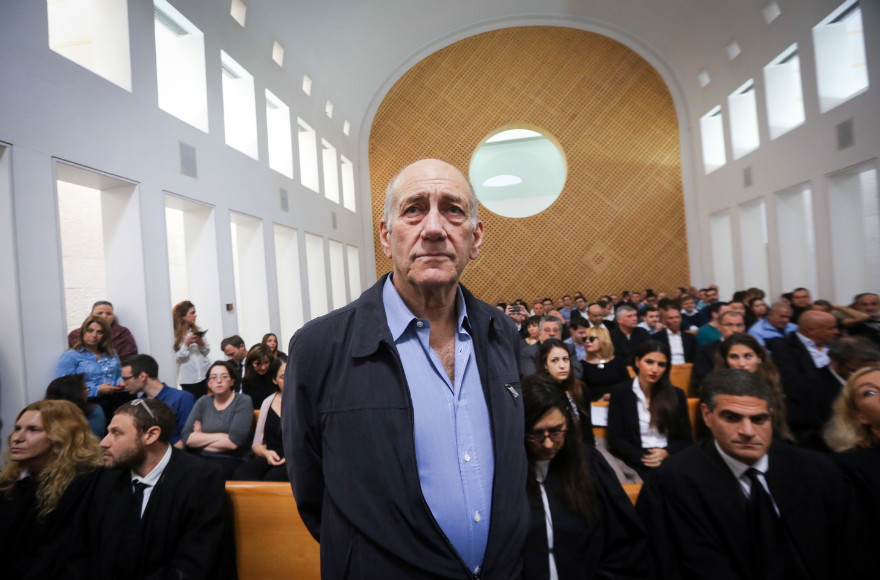Parole restrictions lifted on Ehud Olmert 2 days after he leaves prison
Published July 4, 2017

Former Israeli Prime Minister Ehud Olmert at the Supreme Court in Jerusalem on Dec. 29, 2015, where the justices reduced his prison sentence in the Holyland affair. (Photo by Gil Yohanan/Flash90)
JERUSALEM (JTA) — Israel’s President Reuven Rivlin lifted all parole restrictions on former Prime Minister Ehud Olmert, who left prison on early release this week.
Olmert had petitioned Rivlin for the lifting of the restrictions hours after he left prison on Sunday after serving 16 months of a 27 month sentence for corruption.
On Tuesday, Rivlin’s office announced that Olmert’s restrictions would be limited to time served, which will allow him to travel abroad and will not require him to meet weekly with an Israel Prisons Service social worker.
According to the announcement, “the clemency is dependent on Olmert not committing another crime until the end of his original sentence,” next May.
Olmert was writing an autobiography while in prison that may have touched on sensitive security issues. Last month, one of his attorneys was caught leaving the prison with a chapter that discussed a top secret security-related incident that the military censor has banned in the past for publication.
Upon his release, Olmert’s attorney told Ynet that the ex-prime minister would volunteer at two Israel food recovery NGOs, Ezer Lemarpe and Leket. The volunteer work is not a condition of his release.
Olmert was the first Israeli prime minister to serve time in prison and be sentenced to jail. He resigned his post in September 2008 after police investigators recommended that he be indicted in multiple corruption scandals.
Olmert served his prison sentence for receiving bribes in the Holyland affair in what has been called the largest corruption scandal in Israel. Holyland involved the payment of bribes to government officials by the developers of a luxury high-rise apartment complex in Jerusalem.
Olmert also was convicted for accepting cash-filled envelopes from an American-Jewish businessman, Morris Talansky, and using it for personal and not political expenses.














